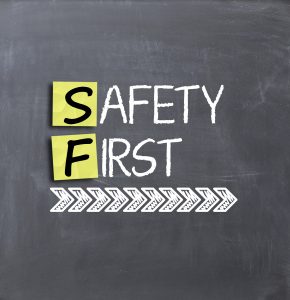By – James M. Katz, BA
Health care costs are rising, and the challenge of finding new ways to reduce them can feel overwhelming. Fortunately, there are strategies you can use to successfully cut costs in health care. Healthcare Management decisions can range from improving processes and taking advantage of technology, to restructuring services and looking for alternative funding sources, there are a range of strategies that can help you achieve significant savings in healthcare. In this article, we will explore seven essential strategies that can help you reduce costs in healthcare, and why they are important. You’ll learn how to develop a plan of action, assess and analyze costs, and identify opportunities for cost-cutting. With the right approach, you can make a real difference to your hospital, clinic, or medical practice’s bottom line.
Healthcare Management can help reduce their wasteful spending in a number of ways. Most hospitals and care providers use a volume payment style for specialists, instead health care managers can move towards a value-based care style. This approach as seen in the video linked below along with other methods can help to greatly reduce wasteful Healthcare Management spending.
“How can we do a better job of removing low-value, wasteful care from the health care system?
The quick and easy answer is you stop paying for it. There’s not been a lot of will to do that, so, the question is: what else can you do? There’s really 2 things. One is, you change how you pay specialists. So, 93% of the specialists in this country are strictly volume based, and that does not foster a value-based care environment. You need to build incentive models so that about a third to up to 50% of the revenue that a specialist makes is based on incentives for value-based care, for population health management, and not based for volume. It’s a tricky thing to do, because the specialty incentive model needs to look completely different for each specialty. They have to be designed specialty specific. It’s difficult, not impossible. We’re actually hard at work doing that now.
“
Commentary:
Assessing Costs: Looking at the full range of healthcare costs
Before you can find ways to reduce costs, you need to be sure that you are looking at the full range of costs in your healthcare organization. It’s very easy to only consider direct costs, or costs related to the delivery of a medical service, such as the cost of staff salaries, drugs, supplies, and equipment. However, there are a number of indirect costs that are just as important to reducing costs in healthcare management. These costs may be less obvious than the direct costs, but are nonetheless an important part of the total cost of healthcare. Indirect costs include the cost of facilities and equipment, as well as depreciation costs. They also include the cost of administration, which includes costs such as marketing, finance, and human resources. If you are satisfied only looking at the direct costs, you could miss out on significant cost-saving opportunities. By taking a more holistic approach to assessing costs, you can better identify how to reduce costs in healthcare.
Streamlining Processes: Optimizing current processes to reduce waste
Healthcare organizations are often plagued by inefficiency and waste. For example, some processes are designed to be inefficient, meaning that they generate no real benefit for the organization, but simply consume resources. By discovering inefficiencies within your processes, you can find opportunities to reduce waste and make significant cost savings. For example, if you use paper records, you are wasting a large amount of paper. Once you have assessed your paper records, you can see where you can reduce these costs. If you have a procedure where patients are asked to sign a form, but the form is never used, then the sign-up time is wasted. Consider making the form a digital record, which can then be reused instead of being thrown away once the patient has signed it.
Exploring Technology: Taking advantage of new technology to increase efficiency
There are many opportunities to reduce costs through technology. For example, some hospitals have found success in using virtual care technologies such as video conferencing and web-based software. Virtual care can be a perfect solution for remote areas with no nearby medical facilities. Technology can also be used to improve the efficiency of routine tasks in healthcare management. For example, many organizations use EMR systems to record and manage patient records. However, these systems are often used to record information that is far from essential. With careful assessment, you can reduce the cost of using EMR systems, and increase the efficiency of the technology at the same time. Consider using paper records where possible, and transfer less essential information from the EMR to digital systems. You can also find ways to make EMR systems more efficient. For example, you could schedule daily or weekly reports to update less essential information. This can help to reduce the cost of using EMR systems, while still benefiting from the technology.
Restructuring Services: Reorganizing services to maximize efficiency
As services are implemented, it is important to assess their efficiency. For example, if your organization offers a walk-in clinic, you may assume that it is an efficient service. However, walk-in clinics often have long waiting times, which is inefficient. An efficient walk-in clinic can help to reduce costs for your organization. To find ways to reduce costs in healthcare, it is important to assess the efficiency of services. If a walk-in clinic is offered to patients, it could be an efficient service. However, if a specific surgery is offered only at a walk-in clinic, then the service is less efficient and could be restructured. It is also important to assess the efficiency of individual surgeries. For example, it may be possible to perform a less invasive procedure with the same amount of time. The more invasive the procedure is, the more time it takes, so it is important to assess the efficiency of individual services.
Securing Alternative Funding: Pursuing new sources of funding
Many health care organizations struggle to cover their costs, which can lead to a shortage of staff, restricted services, or even closure. To reduce the risk of this happening, some organizations have sought alternative funding, such as self-funding or crowdfunding. Alternative funding options can provide a new way to secure funding for your organization, or for new initiatives. For example, healthcare management team may choose to use a portion of its own funding to support innovative projects, such as a new diagnostic service. Alternatively, funding from alternative sources can help to support a new initiative, such as a new clinical trial. Alternative funding options can be a way to secure funding for your organization. Alternative funding options can be a new way to secure funding for your organization, such as crowdfunding, or a portion of your own funding.
Creating a Plan of Action: Developing a plan to implement cost-cutting strategies
It can be difficult to reduce costs when you are relatively new to the sector, or have only started your cost-cutting efforts recently. However, it is important to remain committed to the strategies that you have chosen, and to make sure that they are being implemented effectively. A key part of developing an effective plan of action is to analyze the results of your cost-cutting efforts. This can be done by documenting your progress, and making regular assessments of the efficiency of your cost-cutting strategies. Healthcare Management should also consider involving your staff in the process of cost-cutting, and making sure that they are all aware of the benefits of cost-cutting. This can help to make your organization more efficient and cost-effective, while also helping to make your staff more cost-conscious.
Conclusion: Summarizing the importance of cost-cutting in healthcare
Health care costs are rising, and many organizations are struggling to cover these costs. Fortunately, there are many cost-cutting strategies that you can use to successfully reduce costs, and make significant savings in healthcare management. It is important to remember that the best way to reduce costs is to assess the full cost of your current health care model, and then look for ways to reduce this cost. This requires a more holistic approach to cost-cutting, in which you take into account indirect costs as well as direct costs. Health care costs are rising, and many organizations are struggling to cover these costs. Fortunately, there are many cost-cutting strategies that you can use to successfully reduce costs, and make significant savings in healthcare.
Healthcare Management can be an excellent transition from the nursing field. If you are interested in becoming certified in Healthcare Management then you might want to check out our certification program here.
References:
Wikipedia: Unnecessary Health Care
Additional Resources:
Waste in the US Health Care System: Estimated Costs and Potential for Savings. Shrank WH, et al. JAMA. 2019 Oct 15;322(15):1501-1509. doi: 10.1001/jama.2019.13978. PMID: 31589283.
Reducing Administrative Waste in the US Health Care System. Kocher RP. JAMA. 2021;325(5):427–428. doi:10.1001/jama.2020.24767
Eliminating waste in healthcare spending. Kalipso Chalkidou, et al BMJ 2017;356:j570
Excess Medical Care Spending: The Categories, Magnitude, and Opportunity Costs of Wasteful Spending in the United States. Matthew Speer, et al. 2020: American Journal of Public Health 110, 1743_1748,

















